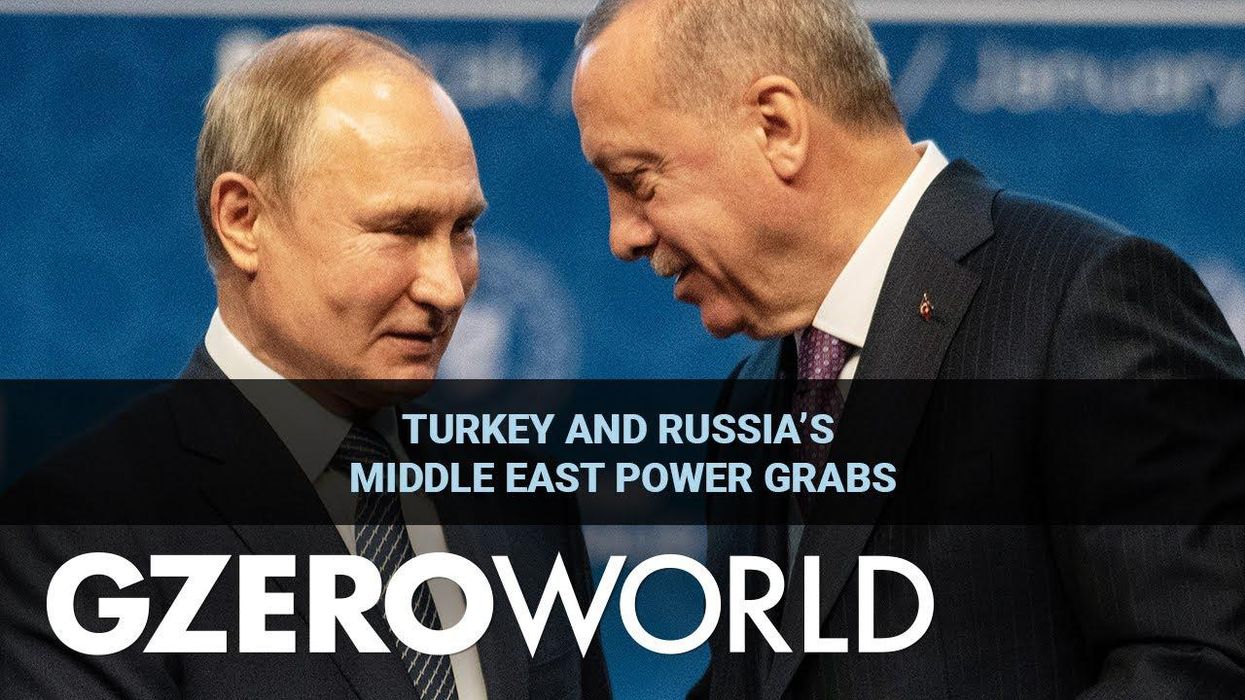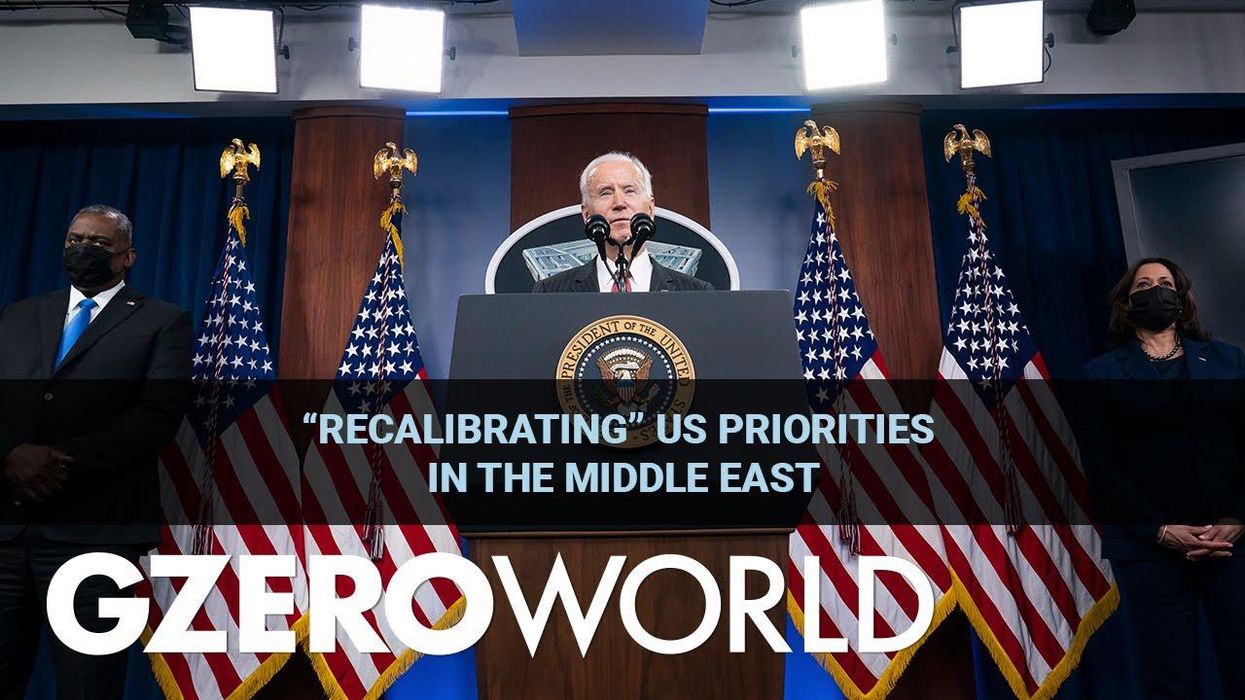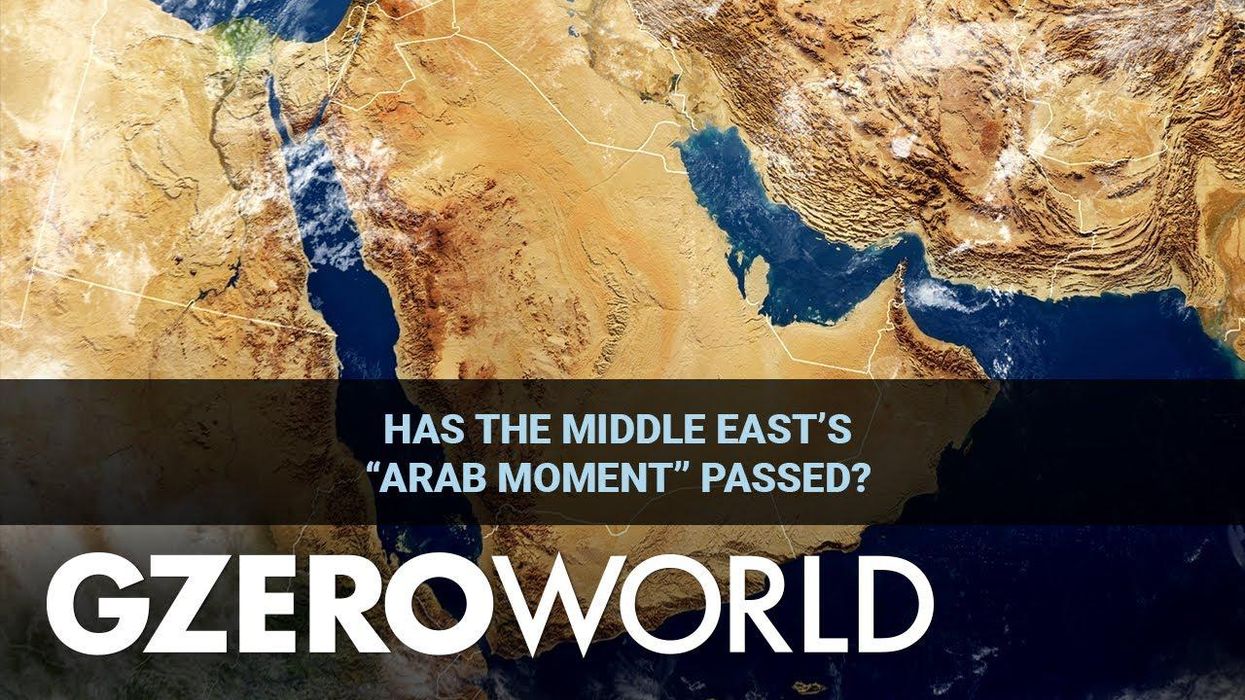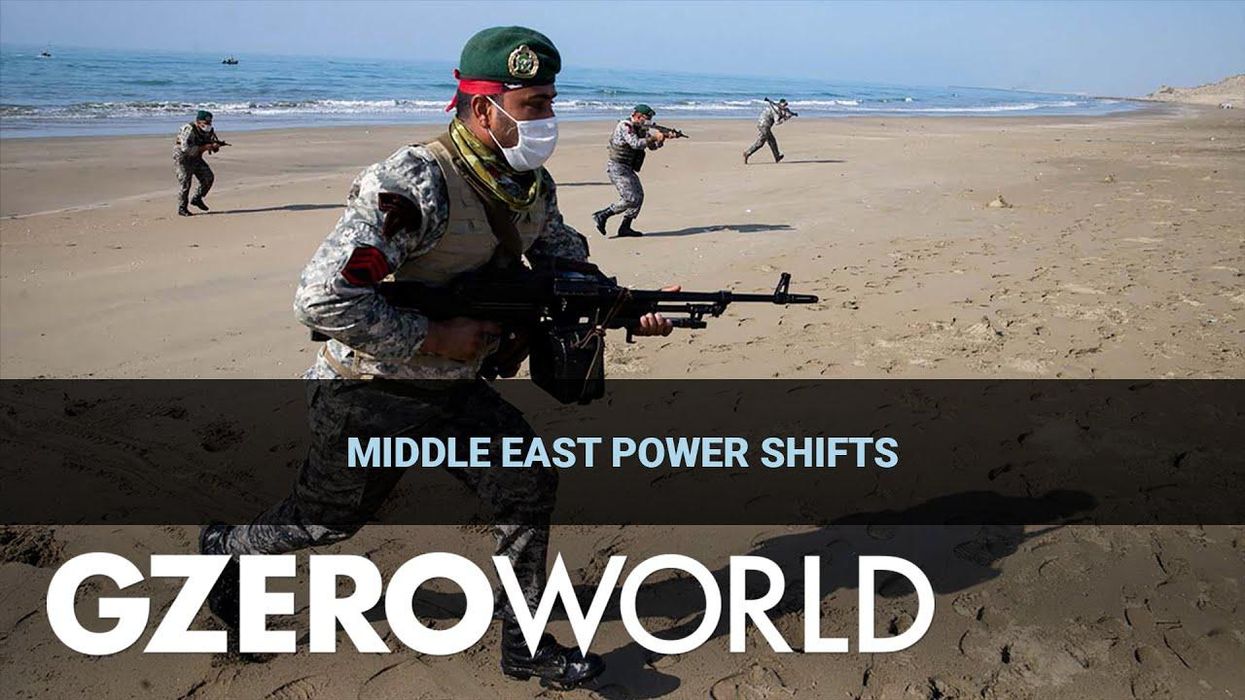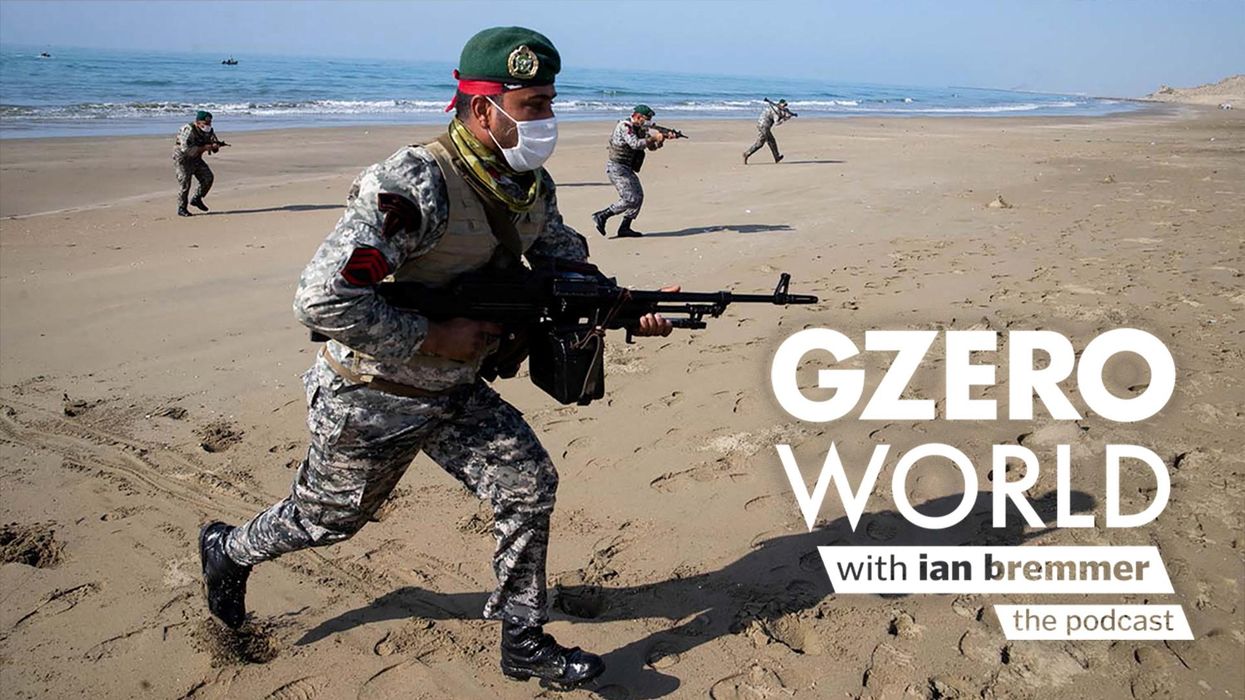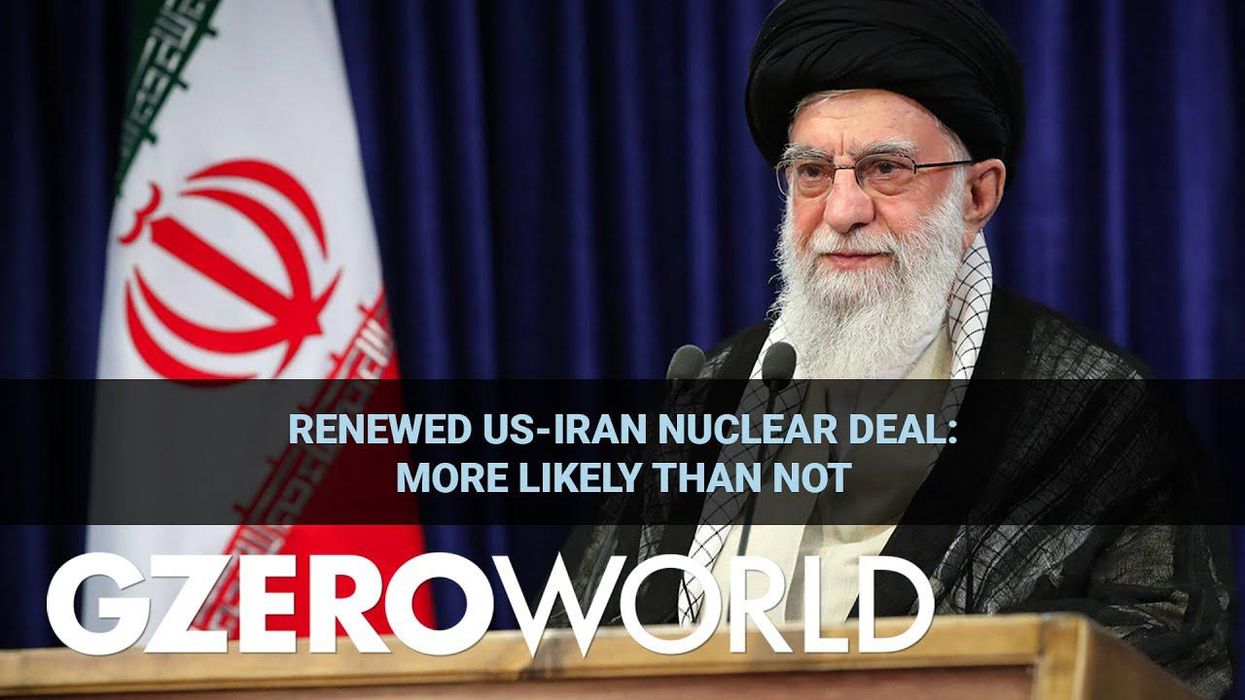GZERO World Clips
Turkey and Russia's Middle East power grabs
Turkey and Russia are asserting their influence in the Middle East like never before. That's according to Johns Hopkins University Middle East Scholar Vali Nasr, who joins Ian Bremmer on GZERO World to unpack the changing power dynamics in the Middle East and the American government's eagerness to pivot away from the region altogether.
Mar 19, 2021
